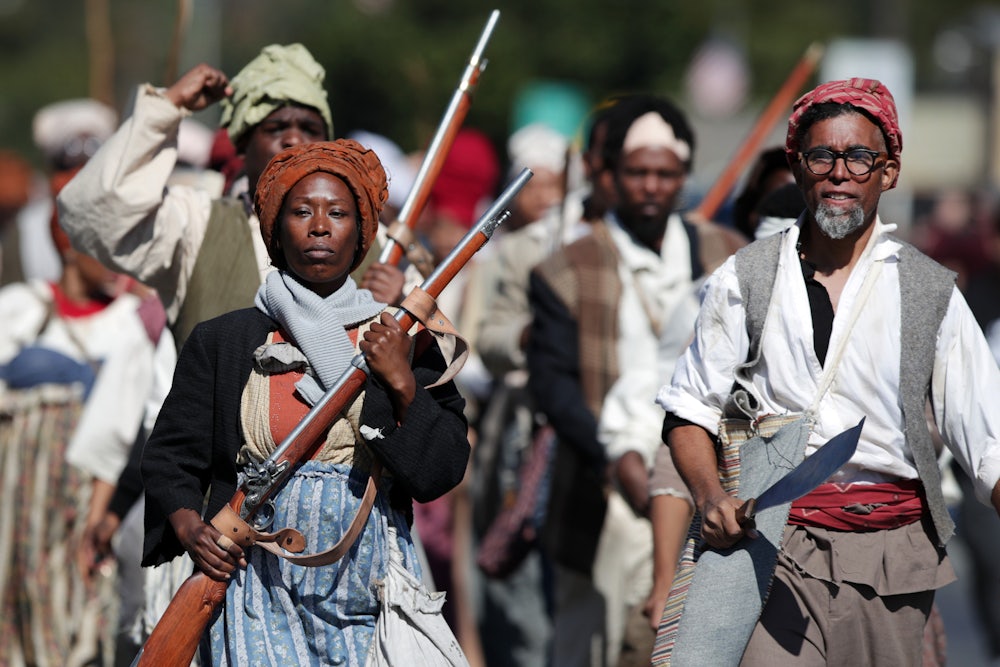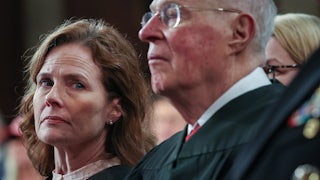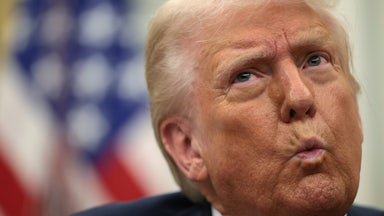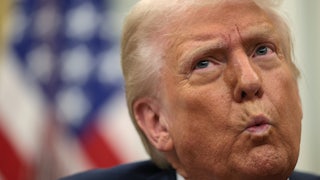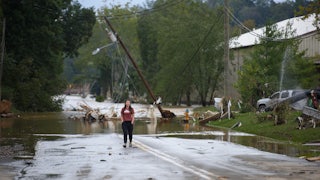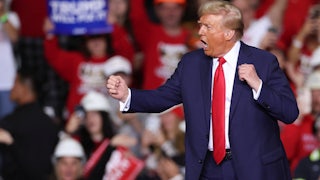What a gun may be to you may not be what a gun is to a Black Southerner. What a gun became as we watched mass shootings by young white men—so often fitting that same profile of loners immersed in right-wing bigotry—had nothing to do with us. For us, a gun was something you kept under your bed or in a closet for when the white men came around with guns for you. Or a tool for you to seek sustenance from the woods to supplement the meager bit the white man had given; the flesh of deer and squirrel could be food on your family’s table to stave off the ever-encroaching hunger.
I grew up in North Carolina, the child of a father who’d been raised in rural poverty in Virginia and a mother whose parents had met at the historically Black Xavier University in New Orleans. Almost all my family lives in the South. I live a Southern life in D.C., in that my people here are D.C.’s Black population, who have lived culturally Southern lives south of the Mason-Dixon line in a municipality where slavery was legal until Lincoln’s decree and Jim Crow was brutal.
Guns are part of everyone’s life in the South. Guns came to the continent of North America as the violent conquering weapon. They became central to white supremacy’s cult, part of how whites terrorized Black communities over the centuries we’ve been coexisting here. Guns are deeply intertwined with the lives of many of the Black folks you’ll find living in Southern states, in Mississippi and Georgia and Texas and Alabama. It’s a fact of life for us that people around us are armed. We hope that those who are armed are on our side, to help defend against threats.
Black Southerners weren’t displaying their guns as a visible symbol of defiance, like the iconic portraits of armed Black Panthers from the 1960s. There’s nothing wrong with that at all—to stand in the face of white America and boldly announce you won’t be backing down. But the ways guns were culturally held in the Black South were different, the covert protection kept for when white supremacists reared their heads at you, that you pull out when needed. That is the distinguishing feature of Black Southern gun culture as opposed to mainstream white gun culture: Black Southern gun culture is a response to violent white supremacy and a defense against it, not a colonial offensive against marginalized groups to subjugate them.
Harriet Tubman was armed leading the enslaved through the backwoods, guided by the constellations northward to freedom. The Black Southerners living during Reconstruction were armed against the Klan. My mother’s father’s people, free Black people who lived as small poor farmers in eastern North Carolina for centuries, kept guns along with their papers demonstrating they were legally free, because white people could raid them and abduct them into slavery at any time.
Being tied to the land—to the cycles of the crops and the seasons, to the types of soil and the temperament of the winds—is likewise part of the experience of being a Black Southerner, relating to other Black Southerners. The rifle in the Black Southern home served a dual purpose: to protect against the ever-present threat of white supremacist terrorism and to hunt game. It served a utilitarian and practical need. It wasn’t there for plots to commit mass violence. My father’s stories of his boyhood in a small Virginia county of a few thousand people were of shooting house mice, going on hunting and fishing trips, and staying guarded in the night for if the white folks got too rowdy and thought terrorizing their Black neighbors could be entertaining. And his experience isn’t a singular one. It’s an upbringing many Black Southerners had and are still having.
Guns are a commonplace tool of necessity in the Black South. Domestic violence exists, as do interpersonal violence and brawls, of course—and it would be foolish not to acknowledge the role guns can play in those. But the idea of setting about to use a gun to inflict terror or plot mass murder is foreign to the Black South.
I’m a person who’d never choose to own or use a gun myself. I don’t trust my physical capacity to handle a gun, I don’t trust my ability to manage it with cool or calm, and I think that because my manic depression takes me into the kind of lows that have me desperately clinging to the urge to live, owning a gun would be a liability for me. But partly because of how I grew up, I still want to be part of a community where I’m protected by those who do own guns. It’s the way I live as an urbanite in Black working-class D.C. too, knowing that I enjoy protection because the ruffians who are robbing in my neighborhood are the people looking out for me. I exist in my urban community where the criminals are fellow community members and only criminalize people who aren’t part of our social network.
White supremacist terrorism of the sort my ancestors grew up with has somehow become mythical for the rest of the country—as if such violence can only be perpetrated in the past, by people literally wearing Klan robes. But it never receded into the past for the Black South. We’ve already seen how the cult of Trumpism has empowered hate crimes and white supremacist attacks across the South ever since he first rose in politics in his first presidential candidacy. Now that the grip of his fascism is firmer on America than ever before, the fire of his garbled oratory of hate will spark more white supremacist vigilantes. The Black South faces still more threats, as anti–“critical race theory” panic effectively works to revive Jim Crow across much of the country. But Black Southerners will be ready, because those are our ways.
And we won’t forget that climate disaster is here and now: While the rest of America looked away, much of Appalachia has lain in ruin in the months after Helene. Communities that don’t have running water or roads or electricity have been in survival mode, organizing labor so that the vulnerable are cared for and resources are distributed. The reason survival leftism is organically operating in Appalachia (though the people who get paid to sit in studio sets and deliver the news forgot) is the reason Black Southerners are keeping their guns by their sides too: Because when there is no order or rule to protect you, or when the order is against you, you become your own order. Be fooled by none of the myths that say we, as Black Southerners, are dupes. We survived centuries of America’s mightiest brutality because we knew what we were doing and used every scrap of a tool at our disposal. That is how we can continue to survive and how, if they dared listen to us instead of hating us, we could lend ourselves to others who wish to survive.
